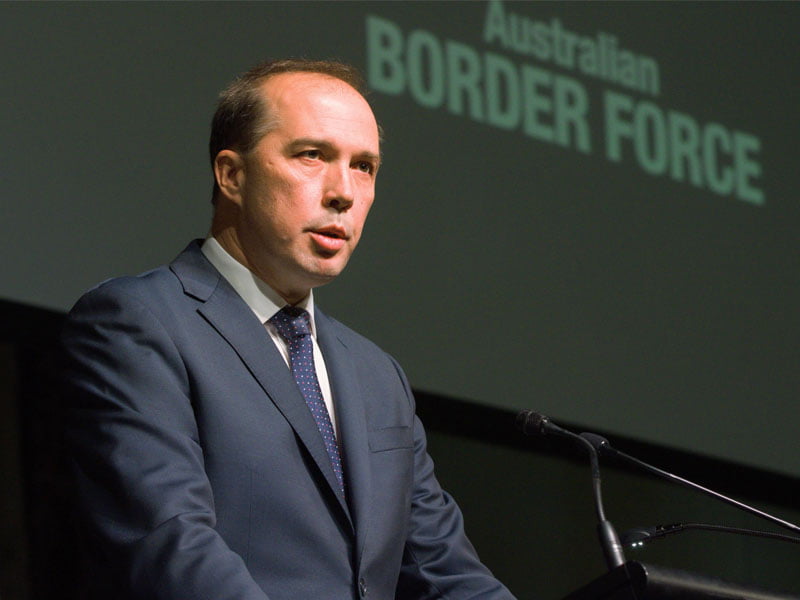The federal government’s controversial anti-encryption bill has been given the green light to be introduced to Parliament just a week after the submissions deadline for its consultation period closed, in a move branded “simply outrageous” by civil and digital rights groups.
The Telecommunications and Other Legislation Amendment (Assistance and Access) Bill was cleared for introduction to federal parliament by the Coalition Joint Party meeting on Tuesday afternoon, despite accepting submissions on the draft legislation up until eight days ago.
The move has been criticised by digital and civil rights advocates, who say government has chosen to simply ignore wide-ranging, critical feedback it has received on the bill.

“It is simply outrageous that the government would move to introduce legislation that is currently undergoing an active review process within one of its own departments,” Digital Rights Watch chair Tim Singleton Norton told InnovationAus.com.
“This decision reflects a lazy indifference to a deeply serious and complex bill.”
“The Coalition should be availing themselves of the feedback of those experts who made submissions. That’s their job. Unless they fix their ignorance, we will be sleepwalking into a digital dystopia.”
Consultation on the draft legislation opened last month, and closed on 10 September. Just five business days later, the Coalition decided to introduce the bill as is to Parliament.
A Home Affairs spokesperson told InnovationAus.com last week that the department would “carefully consider the submissions that have been made and will bring forward any amendments arising from those considerations in due course”.
“We are committed to ensuring this legislation is a reasonable and proportionate response to the problems associated with the increasing use of encrypted communications and invites industry members, interest groups and the public to comment on an exposure draft of the proposed legislation,” the department said.
Digital Rights Watch is now calling for a parliamentary inquiry to look into the legislation.
“If the public cannot depend on the government to undertake a fair, transparent and open consultation process in regard to this legislation, then it is on Parliament to do its jobs,” Mr Singleton Norton said.
“This bill should be reviewed in a parliamentary inquiry to ensure Australians have their voice heard – clearly something [Home Affairs] Minister [Peter] Dutton is trying his hardest to avoid,” he said.
Electronic Frontiers Australia board member Peter Tonoli agreed, saying that the quick approval of the bill rendered the consultation process meaningless.
“Tabling the legislation so soon brings up the question of whether or not the government was ever interested in pursuing good faith consultation process for the legislation,” Mr Tonoli told InnovationAus.com.
“At the very least, if the government is seeking a skerrick of legitimacy for the proposed bill, the bill must be referred to the Parliamentary Joint Committee on Intelligence, for further oversight and consultation with industry, law enforcement and civil society.”
Greens senator Jordon Steele-John also criticised the Coalition party room for approving the legislation before the Department of Home Affairs’ consultation was complete.
“There is simply no way the government has had time to consider all of those responses in their decision to endorse the bill this morning,” Senator Steele-John said.
“Although the consultation process has not yet been made public, we’ve seen the United Nations, the Australian Human Rights Commission, Digital Rights Watch, Human Rights Watch and other significant organisations publicly criticise the overreach of this bill,” he said.
“The weight of these submissions alone should be enough to make the government think twice about trying to ram this bill through the parliament.”
While the Opposition is yet to come up with a formal decision on the contentious legislation and whether it will support is passing through Parliament, shadow cybersecurity minister Gai Brodtmann told InnovationAus.com recently that “extensive consultation” is required on it.
“We’ve got the legislation and we’re going through in detail on that. We need to consult extensively on this and look to the UK in terms of their consultation,” Ms Brodtmann said.
“They had five inquiries into it, two or three parliamentary inquiries and a number of independent inquiries. They’ve been consulting on it for years, not months. We need to consult extensively on it.”
The legislation gives new powers to Australian law enforcement and agencies to force tech companies to assist with providing access to encrypted communications.
Civil and digital rights groups are concerned about this weakening encryption as a whole and the lack of oversight on the application of these orders.
Some of the biggest tech companies in the world placed a submission as part of the consultation, with DIGI – a lobby group representing Facebook, Google and Apple – saying the legislation gives “extraordinary powers of unprecedented scope” and may serve to “undermine public safety”.
In a rare submission, the Internet Architecture Board also raised concerns with the bill’s “serious and undesirable impact”, saying it could lead to the “fragmentation of the internet”.
In a joint submission, several digital and civil rights groups said the bill grants “extremely broad powers with almost no oversight without any substantive justification” and “effectively enacts insecurity by design”.
The groups also criticised the government for a short consultation period.
Do you know more? Contact James Riley via Email.

